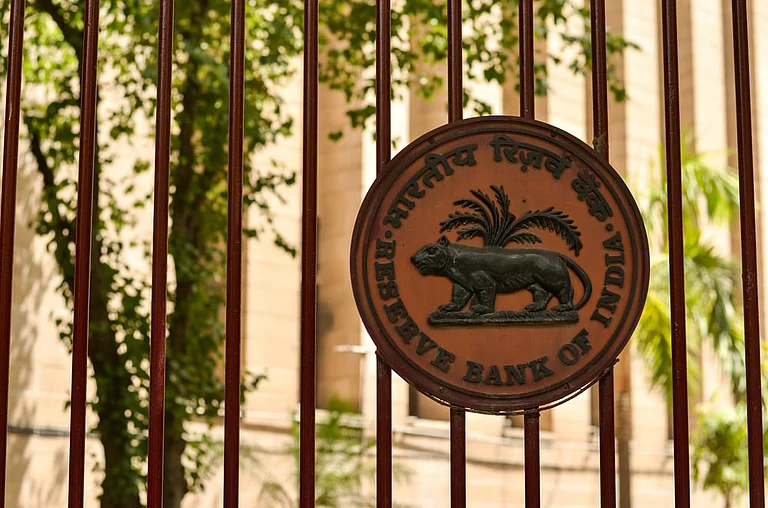In the backdrop of escalating tensions with Pakistan, Finance Minister Nirmala Sitharaman has instructed all financial institutions and banks to remain on high alert and standby mode for any sort of emergency situation. She was urged to ensure that banking facilities across the country, especially in border areas, are not disrupted, particularly at this critical point of time.
India-Pak Crisis: FM Sitharaman Urges Banks To Enhance Cybersecurity
Amid growing tensions with Pakistan, the Finance Minister directs banks to maintain seamless operations, enhanced cybersecurity, and timely insurance settlements
Speaking to a gathering of managing directors and CEOs of public sector and private sector banks as well as insurance companies, Sitharaman emphasised the need to ensure business continuity. The minister reiterated that physical as well as online banking operations must be functional without any disruption. The requirement, in particular, indicated that the availability of liquidity in ATMs, hassle-free UPI and Internet banking amenities, and easy access to primary banking amenities is crucial and strictly necessary in the current situation.
Besides guaranteeing seamless transactions, Sitharaman asked insurance firms to prioritise payment of claims in a timely manner. She assured the citizens and enterprises that no one should lose due to a breakdown in banking or insurance services. Directives from the Finance Minister have been issued when there has been a growing concern regarding regional instability threatening essential services.
Sitharaman further stressed that the need for higher levels of cybersecurity was a necessity. She instructed all banks to make periodic audits of their cybersecurity system and data centres. These are intended to check whether all computer and core banking infrastructure is entirely secure and under monitoring round-the-clock to avert possible cyberattacks or security breaches. The government's initiatives to secure bank infrastructure are part of a comprehensive strategy to secure key national services, including financial sector-related services.
Banks were asked to work closely with key government ministries such as the Reserve Bank of India (RBI), the Indian Computer Emergency Response Team (CERT-In), and other related security agencies. This is intended to have real-time information sharing and coordination so that quick and effective actions may be undertaken to mitigate any cybersecurity risks or operational issues.
The Finance Minister also ordered that every bank would have to specify two top-ranking officers who will oversee the core issues. There will be an officer handling the cyber-related matter and the other one to handle operation-oriented issues such as making bank branches operational and keeping ATMs in a full-fledged manner around the clock. The officers shall also be compelled to report such incidents promptly to CERT-In and the Department of Financial Services (DFS), to ensure that the response is structured and swift.
In the meeting, officials from various financial institutions reported to the minister that the banking sector had gone a long way in strengthening the cybersecurity infrastructure within it. The banks have already implemented Anti-DDoS (Anti-Distributed Denial-of-Service) technologies to protect networks from mass-level cyberattacks. These measures aim to counterbalance the impact of online disruptions to ensure banking operations are available for public use.
Banks have also indicated that mock drills have been conducted to test their preparedness in the event of cybersecurity attacks or any other crisis. The drills aim to simulate disaster recovery and ensure that institutions can respond appropriately under stress. Banks have also closely monitored phishing attempts and sent employees regular reminders to increase awareness and mitigate risks.
Banks' network operations centres and security operations are on full alert and in high gear. The centres are closely working with the CERT-In and the National Critical Information Infrastructure Protection Centre (NCIIPC) and this facilitates them to monitor and share potential threats in real time. Banks are thereby augmenting their response to any operation or cybersecurity challenge that arises due to this collaboration.
Besides operational and cybersecurity concerns, Sitharaman also expressed concern for the welfare and safety of bank employees stationed in border districts. Given the sensitive location of these areas, the Finance Minister instructed banks to work closely with security agencies so that employees as well as their families are kept safe during this period of uncertainty.
The Finance Minister also asserted that the sponsor banks would need to extend assistance to Regional Rural Banks (RRBs) so that they are well placed to handle whatever issues would confront them. Such assistance is extremely necessary to sustain the banking system in rural and semi-urban areas, where the delivery of financial services might be more prone to interruption in the face of a crisis.
Sitharaman also urged the banking sector to remain vigilant of the likelihood of heightened risks of fraud and financial crime during such periods. She pointed out that cyber attackers often exploit national crises to indulge in malicious behaviour, and therefore, it was necessary for banks to remain ahead of the curve in security efforts.
